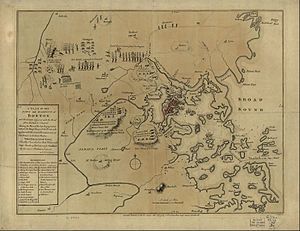It may seem to the casual observer that Bahrain is surprisingly quiet this year.
The political problems have not ceased, however, and Bahrain remains in the thick of its social upheaval. Negotiations between the government and the opposition began again in February, and the move in March to appoint Crown Prince Salman bin Hamad bin Isa al-Khalifa as first deputy prime minister was seen as a way to improve the negotiations, as he is considered to be a softer, more open man than his more hard-line father, King Hamad bin Isa al-Khalifa.
The opposition, meanwhile, is staging a series of peaceful demonstrations during the race weekend this year.
“These demonstrations show that the movement continues and the demands have not been met yet,” Khalil al-Marzouq, a leader of the main opposition group Wefaq, told Reuters on Wednesday. “Obviously, the presence of the media for the Formula One helps shed the spotlight on Bahrain.”
Bernie has been doing his unctuous best to try and pretend that he cares about anything except money-
But while Bernie has been going la la la, I can’t hear you and the toadies in the Sporting Media have been typically silent, what’s really been happening is brutal suppression.
Last year most teams stayed in Manama, Bahrain’s capital, and had to make a 20 mile trip to the track each day. This year the teams are housed in a hotel steps from the paddock and are in virtual "voluntary" lockdown. No Force India Molotovs this year.
Also, just like last year, independent journalists have been denied visas or ejected lest they report on things like this-
Bahrain protests to be stepped up before grand prix, says rights group
(P)ro-democracy protesters opposed to Sunday’s race have also been frustrated by increased security measures which have driven them out of the capital, Manama. Shehabi said: “There was a blanket ban on all protests after last year’s grand prix. People have been forced underground now. Protesters have been pushed to parts of small villages where they can’t be heard or seen. As long as you’re not seen or heard by anyone it’s OK.
“There is a continuation of government repression. We haven’t seen justice or accountability for the F1 staff who were sacked and arrested and tortured in 2011. They were tortured at the circuit itself.”
…
Said Yousif, spokesman for the Bahrain Centre for Human Rights, said: “There has been a government crackdown here and it started two weeks ago, especially in the villages close to the F1 track, and 65 people have been arrested. Leaders have been beaten and tortured before being released, so everyone can see the marks of beating and torture. Houses have been razed in different villages. Tear gas has been used at close range. No one has died, as happened last year, but the crackdown has continued. I was in jail for a month three months ago just because I tweeted an injury in the capital.”
For make no mistake, protests are continuing.
Bahrain protests grow as Bernie Ecclestone considers city for F1 start
As tension built here on Friday, with an estimated 10,000 pro-democracy demonstrators gathering at Budaiya Highway in the afternoon and more serious trouble expected overnight, Ecclestone’s stance could be seen as provocative.
Around the Sakhir circuit itself, there was tight and vigilant security and those travelling here had to negotiate widespread road blocks. There were hundreds of police on view and police cars and armoured vehicles were even more in evidence than they were last year. Early in the afternoon a long plume of smoke could be seen a few miles from the circuit. As another security measure, everyone has been photographed on the way to the track.
According to sections of the Italian media, the Ferrari team were told to remain in their hotel at night, although this was denied by a spokesman, who said: “Everyone has just been told to be careful.” Nonetheless, more teams are staying in a trackside hotel to avoid driving through the capital, Manama, as many of them did last year.
Those who did drive back to Manama on Thursday evening went down a highway which separated demonstrators from the police, who looked to be firing tear gas. The Gulf Daily news carried a report of rioters blocking roads and attacking police as violence escalated on Thursday evening, with a Molotov cocktail attack on Sitra police station. Another report highlighted an attack on Tubli Primary School for Boys, with disruption caused by locking the gates with chains.
…
Meanwhile, the British government has upgraded its warning to visitors to Bahrain, telling them to avoid large crowds and demonstrations and Bahraini nationals have been advised to avoid villages and financial districts following last Sunday’s explosion at the Bahrain Financial Harbour, where a gas cylinder was detonated inside a stolen car.
Which I reported on here.
Protests held in Bahrain ahead of Formula One
Thousands of Bahrainis have demonstrated near the capital, Manama, urging democratic reforms, part of a series of protests planned by the political opposition ahead of next week’s Formula One Grand Prix.
…
A second opposition group, the February 14 Movement, organised another protest on Thursday night in the village of Khamis that was broken up by police.
Thursday night’s demonstration came as a report by Human Rights Watch said that police have been rounding up pro-democracy activists in bid to head off protests.
…
Clashes erupted when anti-riot police intervened to disperse the crowd and demonstrators responded with Molotov cocktails, witnesses said.
…
Human rights groups say a total of 80 people have been killed since February 2011.
Clashes as Bahrain gears up for Grand Prix
Clashes began when supporters of the February 14 Revolution Youth Coalition, a clandestine cyber-group that had called for a “Day of Rage”, tried to march on the former Pearl Square in Manama, the capital.
…
Police fired tear gas and shotguns to disperse the protesters before they neared the area, witnesses said, but no casualties were reported.
The movement’s supporters – armed with petrol bombs and stones – clashed with police in Shia villages outside Manama and burnt tyres to block main roads, the sources said.
Smoke from burning tire fires which the protesters use as barricades is visible from the track and the road to and from Manama is lined with Police and Military in riot gear.
I reported last week on Damon Hill’s staunch opposition to holding this race at all in which he is joined by curren driver Mark Webber.
Ecclestone, however, has said he is considering returning Bahrain to its ‘Season Opener’ status next year which is attractive to the Bahrainis because the teams arrive a week earlier for additional testing and would further bolster their “Everything’s perfectly all right now. We’re fine. We’re all fine here now, thank you.” case, even though there is a premium fee to be paid to Ecclestone and Formula One Management.
Most teams are lukewarm at the prospect–
Ferrari’s Stefano Domenicali said: “I don’t think it would be good for Formula One to be involved in the political situation of the country because then there is the risk of being pulled from one side to the other, which is not really what we should do.”
His counterpart at McLaren, Martin Whitmarsh, said: “I think we’re only all qualified to talk about it from a sporting perspective and since Bahrain introduced Formula One to this region, it’s been a great event and a hospitable grand prix to attend,” and Lotus’s Eric Boullier added: “It’s true that we don’t want to be dragged into a political situation. If the promoter, the FIA and the commercial rights holder agree with the decision to race here, we race here.”
Others on the grid though, privately are looking forward to getting the first available flight out on Sunday evening.
Qualifying starts at 7 am on NBCSports with a repeat at 1 am tomorrow. Also today from Bahrain the start of the GP2 season at 4:30 pm and IndyCar Long Beach Qualifying at 6 pm and 9:30 pm.


 Welcome to the Stars Hollow Health and Fitness News weekly diary. It will publish on Saturday afternoon and be open for discussion about health related issues including diet, exercise, health and health care issues, as well as, tips on what you can do when there is a medical emergency. Also an opportunity to share and exchange your favorite healthy recipes.
Welcome to the Stars Hollow Health and Fitness News weekly diary. It will publish on Saturday afternoon and be open for discussion about health related issues including diet, exercise, health and health care issues, as well as, tips on what you can do when there is a medical emergency. Also an opportunity to share and exchange your favorite healthy recipes. 

Recent Comments